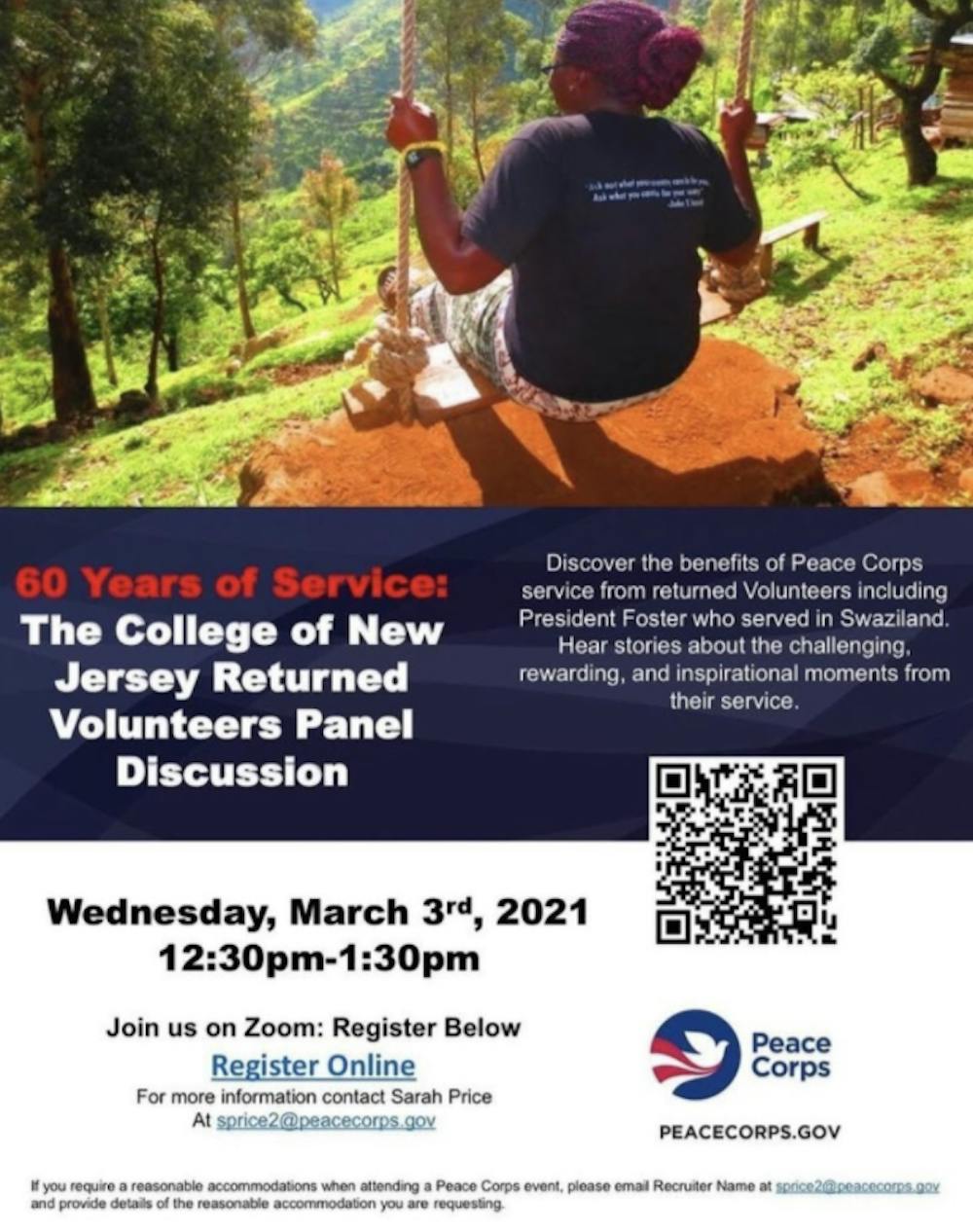By Rishi Shah
News Editor
Peace Corps regional recruiter Sarah Price was joined by President Kathryn Foster, professor Donald Hirsch of the chemistry department and College alumna Jasmine Miller in a panel event on Wednesday, March 3 to celebrate 60 years of service with the Peace Corps.
After a brief introduction from Price, the panelists, all of whom served in the Peace Corps in the past, were asked about their respective experiences.
Foster explained how she served from 1987 to 1989 as a land-use planner in the capital city of Swaziland (now known as the Kingdom of Eswatini) with the Ministry for Natural Resources. Hirsch narrated his experience teaching secondary math and science in the remote valley region of Swaziland.
Miller served from 2019 to 2020 as a health services worker in Ghana until she was evacuated due to the Covid-19 pandemic. She worked on projects where she led family planning and malaria-prevention projects. She also taught middle school students sexual education lessons, among other lessons.

When posed with the first question about why they joined the Peace Corps, the panelists took turns explaining their reasons.
Foster mentioned how she “had three motivations for Peace Corps, all of which were pretty selfish.” These motivations included wanderlust, uncertainty about what she wanted to get her Ph.D. in and the desire to speak a new language fluently.
Hirsch also “had a mix of altruism and selfish motives.” He explained how the ads he had seen on television back in the 1960s and 1970s inspired him to serve, with the impetus coming from a desire to get a sense of where his future career would lead.
Miller explained how her passion for service, which could be seen in her involvement as a Bonner Scholar while at the College, contributed to her desire to serve. She made it clear that her experience studying abroad in Ghana her senior year and interning at a local hospital pushed her to search for a similar position as a Peace Corps volunteer.
“I wanted to get back to Ghana, so I decided to look into positions (and) postings in Ghana and I applied for a community health worker position, which was the perfect fit for me,” Miller said.
After further discussion on everyone’s experiences as Peace Corps volunteers, there was talk of an influential or inspiring host-country national that had made an impact on the panelists.
Hirsch noted that his Swazi mother, part of the family that had “adopted” him when he came to the country as a Peace Corps volunteer “was just so welcoming, and always in good humor.”
Hirsch mentioned how the lack of technology at the time made it difficult to communicate with his Swazi mother after leaving. “Sadly, it was really challenging when I left to stay in touch with her … I did write for I would say probably six or eight years, but I essentially never got anything back. I think it was just really challenging.”
Foster agreed with Hirsch that her Swazi mother was the most inspiring and influential person from the host country. Foster explained how even though her Swazi mother was not technically part of the family that had “adopted” her, she was a close friend of the family and was the only one that spoke English.
Miller said that her host sister was the most influential person to her from her time in Ghana. Miller said she “pretty much helped me with everything when I got to my site … she really helped me out so much.”
Price clarified for the audience that Peace Corps volunteers spend the first three months of their service in a training period, after which they meet their host family.
As the event concluded, Miller detailed her journey from biology major at the College to public health major to eventually landing a job with the Office of Global Health and HIV at the Peace Corps headquarters in Washington, D.C. She said that working without structure during her service period helped her become independent and take initiative: qualities that help her today in her current capacity.
Foster advised potential Peace Corps volunteers at the College to get in touch with those at the Career Center for assistance with becoming a volunteer. She also recommended not taking a cell phone or at least refraining from using social media while serving in order to appreciate the experience.
Students interested in volunteering with the Peace Corps are encouraged to get in touch with regional recruiter Sarah Price for further information or a one-on-one session through this link.







